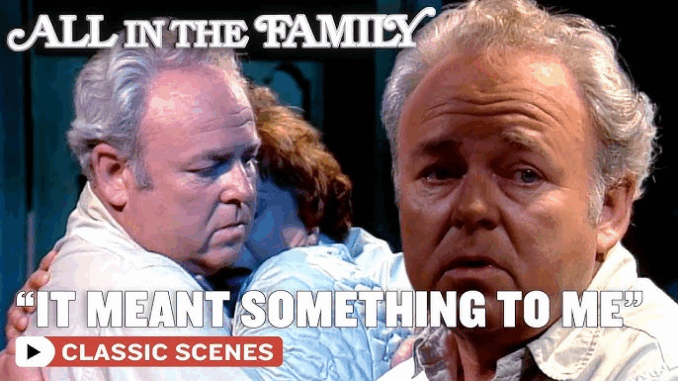
In the world of American television, All in the Family remains an undeniable milestone. This wasn’t just another sitcom; it was a social revolution, reshaping how societal issues and family dynamics were portrayed. Since its debut in 1971, the show caused a cultural shockwave, challenging norms and igniting fiery debates on topics such as racism, gender roles, and class division.
Behind the laughter and zany antics, All in the Family dared to delve into the serious issues that few shows would touch. At the heart of the series was Archie Bunker, a bigoted, outspoken man who symbolized the old guard—clinging to outdated views and prejudices about almost everything. But it was precisely these conflicts that made All in the Family an incredibly poignant exploration of America’s social divide in the post-war era.
What made the show truly “shocking” wasn’t just its reflection of societal rifts, but how it confronted these issues head-on. The bitter clashes between Archie and other family members—especially his son-in-law Mike, a liberal intellectual—created not only laugh-out-loud moments but also forced viewers to confront their own beliefs. For the first time, a TV show was not just about entertainment; it was about asking uncomfortable questions about acceptance, change, and the evolution of social values.
Archie, with all his faults, was a mirror to America’s struggle between the past and the future. His stubbornness, often ridiculed, represented a significant portion of the American population at the time, unwilling to let go of old ways. Meanwhile, characters like Mike and Gloria (his daughter) represented the push for progress, the fight for civil rights, and the demand for equal opportunities.
This clash of ideologies was the backbone of the series, but the brilliance of All in the Family was how it made room for both perspectives to be heard—without simply demonizing Archie. The show made it clear that social change was messy, uncomfortable, and complex. It didn’t offer easy answers but invited viewers to reflect on the world around them, all while making them laugh at the absurdity of human nature.
In essence, All in the Family wasn’t just a sitcom; it was a mirror to the turbulent 1970s, a time when American society was confronting its own identity and the changes brewing in its political, racial, and social landscapes. This was a show that pushed boundaries—offending some, enlightening others—and forever changed the way television would handle social commentary. Through Archie Bunker’s unapologetic ignorance and the family’s ongoing battle to coexist, the show proved that laughter could be both an escape and a wake-up call.
